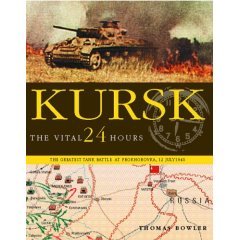The number of primary sources in translation for this period is rapidly increasing, and many are now available on university websites. Amongst the numerous collections of source extracts, Readings in Medieval History, ed. Patrick J. Geary (3rd edn., 2 vols, Peterborough, Ontario, 2003), is one of the most comprehensive.
For the Empire, important narratives include Ottonian Germany: The Chronicon of Thietmar of Merseburg, trans. D. A. Warner (Manchester, 2001), and Otto of Freising’s two works, The Two Cities, trans. C. C. Mierow (New York, 1928, repr. 2002), and The Deeds of Frederick Barbarossa, trans. C. C. Mierow (New York, 1953); see also the selected texts in Medieval Monarchy in Action: The German Empire from Henry I to Henry IV, trans. B. H. Hill (London and New York, 1972), and Imperial Lives and Letters of the Eleventh Century, ed. R. L. Benson, trans. T. E. Mommsen and K. F. Morrison (2nd edn., New York, 2000). Two important Norman narratives are The Gesta Normannorum Ducum of William of Jumieges, Orderic Vitalis, and Robert of Torigni, ed. and trans. E. M. C. van Houts (2 vols., Oxford, 1992-5), and The Ecclesiastical History of Orderic Vitalis, ed. and trans. M. Chibnall (6 vols., Oxford, 1969-80). Other French regions are less well served by English translations; exceptions include Feudal Society in Medieval France: Documents from the County of Champagne, trans. T. Evergates (Philadelphia, 1993); Rodulfus Glaber, The Five Books of the Histories, ed. and trans. J. France (Oxford, 1989); Self and Society in Medieval France: The Memoirs of Abbot Guibert of Nogent, trans. J. F. Benton (New York, 1970); Suger, The Deeds of Louis the Fat, trans. R. C. Cusimano and J. Moorhead (Washington, 1992); and Jean de Joinville, ‘The Life of Saint Louis’, Chronicles of the Crusades, trans. M. R. B. Shaw (Harmondsworth, 1963), 164-353. For Flanders, see Galbert of Bruges, The Murder of Charles the Good, Count of Flanders, trans. J. B. Ross (New York, 1967).
Many of the vast numbers of translated sources concerning England are collected in English Historical Documents, i. 500-1042, ed. D. Whitelock (2nd edn., London, 1979); ii. 1042-1189, ed. D. C. Douglas and G. W. Greenway (2nd edn., London, 1981); iii. 1189-1327, ed. H. Rothwell (London, 1975). Amongst important narratives are The Anglo-Saxon Chronicle, trans. D. Whitelock et al. (London, 1961); William of Malmesbury, Gesta Regum Anglorum, ed. R. A. B. Mynors et al. (2 vols., Oxford, 1998-9); and Henry of Huntingdon, Historia Anglorum, ed. and trans. D. Greenway (Oxford, 1996). Sources from other parts of the British Isles include Early Sources of Scottish History
A. D. 500-1286, ed. A. O. Anderson (2 vols., 1922, repr. 1990); Brut y Tywysogyon or the Chronicle of the Princes: Red Book of Hergest Version, ed. and trans. T. Jones (2nd edn., Cardiff, 1973); and Gerald of Wales, Expugnatio Hibernica: The Conquest of Ireland, ed. and trans. A. B. Scott and F. X. Martin (Dublin, 1978). For one of the most influential of all medieval texts, see Geoffrey of Monmouth, History of the Kings of Britain, trans. L. Thorpe (Harmondsworth, 1966).
Other regional collections include Medieval Iberia: Readings from Christian, Muslim, and Jewish Sources, ed. Olivia Remie Constable (Philadelphia, 1997); The World of El Cid: Chronicles of the Spanish Reconquest, trans. S. Barton and R. Fletcher (Manchester, 2000); The Towns of Italy in the Later Middle Ages, trans. T. Dean (Manchester, 2000); and The Normans in Europe, ed. and trans. E. van Houts (Manchester, 2000); see also ‘Hugh Falcandus’, The History of the Tyrants of Sicily 1154-69, trans. G. Loud and T. Wiedemann (Manchester, 1998). For east-central Europe, see Gallus Anonymous, Gesta Principum Polonorum: The Deeds of the Princes of the Poles, trans. Paul W. Knoll and Frank Schaer (Budapest and New York, 2003); Simon of Keza, Gesta Hungarorum (The Deeds of the Hungarians), trans. Laszlo Veszpremy and Frank Schaer (Budapest and New York, 1999); and The Origins of Christianity in Bohemia: Sources and
Commentary, ed. Marvin Kantor (Evanston, IL, 1990). The best-known Byzantine narrative is The Alexiad of Anna Comnena, trans. E. R. A. Sewter (Harmondsworth, 1969).
Great vernacular literary or historical works include The Song of Roland, trans. D. Sayers (Harmondsworth, 1957); The Poem of El Cid, trans. R. Hamilton and J. Perry (Harmondsworth, 1984); Chretien de Troyes, Arthurian Romances, trans. W. W. Comfort (Everyman, repr. 1968); The Songs of Bernart de Ventadorn, ed. and trans. S. G. Nichols and J. A. Galm (Chapel Hill, NC, 1962); The Courtly Love Tradition, ed.
B. O’Donoghue (Manchester, 1982); The History of William Marshal, ed. A. J. Holden and D. Crouch, trans. S. Gregory (2 vols. to date, London, 2002-4); Dante’s The Divine Comedy (many translations); The Book of Deeds of James I of Aragon, trans. D. Smith and H. Buffery (Aldershot, 2003); and The Jewish Poets of Spain, ed. D. Goldstein (Harmondsworth, 1971). Source collections for specific themes include Women’s Lives in Medieval Europe: A Sourcebook, ed. E. Amt (London and New York, 1993), and Love, Marriage, and Family in the Middle Ages: A Reader, ed. J. Murray (Peterborough, Ontario, 2001). Legal texts include The Etablissements de Saint Louis: Thirteenth-Century Law Texts from Tours, Orleans, and Paris, trans. F. R. P. Akehurst (Philadelphia, 1996); The Treatise on the Laws and Customs of the Realm of England commonly called Glanvill, ed. and trans. G. D. G. Hall (2nd edn., Oxford, 1993); and The Usatges of Barcelona, trans. D. J. Kegay (Philadelphia, 1994). For Andreas Capellanus, see The Art of Courtly Love, trans. J. J. Parry (New York, 1941).
For religious orders, see The Cistercian World: Monastic Writings of the Twelfth Century, trans. P. Matarasso (Harmondsworth, 1993); St Francis of Assisi: Writings and Early Biographies, trans. M. A. Habig (4th edn., Chicago, 1983); and The Templars: Selected Sources, trans. Malcolm Barber and Keith Bate (Manchester, 2002). The Letters of St Bernard of Clairvaux, trans. B. S. James (Stroud, 1953), provides the leading source for the most famous twelfth-century monk. For Abelard and Heloise, see below (Intellectual and Cultural History). The Register of Pope Gregory VII1073-1085, trans. H. E. J. Cowdrey (Oxford, 2002), provides insights into the period’s most controversial pope. Examples of sources concerning religious practice are The Miracles of Our Lady of Rocamadour, trans. M. Bull (Woodbridge, 1999); The Pilgrim’s Guide to Santiago de Compostela, trans. W. Melczer (New York, 1993); and Medieval Popular Religion, 1000-1500:
A Reader, ed. John Shinners (Peterborough, Ontario, 1997). Sources for heresy include The Birth of Popular Heresy, ed. R. I. Moore, (London, 1975); Heresy and Authority in Medieval Europe: Documents in Translation, ed. E. Peters (London, 1980); Heresies of the High Middle Ages, ed., W. L. Wakefield and A. P. Evans (2nd edn., New York, 1991); Peter of Les-Vaux-de-Cernay, The History of the Albigensian Crusade, trans. W. A. and M. D. Sibly (Woodbridge, 1998); and The Song of the Cathar Wars, trans. J. Shirley (Aldershot, 1996).
Amongst translated crusading narratives are The First Crusade: The Chronicle of Fulcher of Chartres and Other Source Materials, ed. and trans. E. Peters (2nd edn., Philadelphia, 1998), and Gesta Francorum: The Deeds of the Franks and the other pilgrims to Jerusalem, ed. R. Hill (London, 1972); for the Second Crusade, Odo of Deuil, De profectione Ludovici VII in Orientem, ed. and trans. V. G. Berry (New York, 1948), and The Conquest of Lisbon, ed. and trans. C. W. David, rev. J. Phillips (New York, 2001); for the Third, The History of the Holy War: Ambroise’s Estoire de la Guerre Sainte, ed. and trans. M. Ailes and M. Barber (2 vols., Woodbridge, 2003); Chronicle of the Third Crusade, trans. H. Nicholson (Aldershot, 1997); and The Rare and Excellent History of Saladin, trans. D. S. Richards (Aldershot, 2002). For later crusades, see Joinville and Villehardouin: Chronicles of the Crusades, trans. M. R. B. Shaw (Harmondsworth, 1963), and Christian Society and the Crusades 1198-1229, ed. and trans. E. Peters (Philadelphia, 1971). See also Arab Historians of the Crusades, trans. F. Gabrieli and E. J. Costello (New York, 1969), and The Jews and the Crusaders: The Hebrew Chronicles of the First and Second Crusades, ed. and trans. S. Eidelberg (Madison, 1977). For the most famous of all medieval travellers’ texts, see The Travels of Marco Polo, trans. R. Latham (Harmondsworth, 1958).




 World History
World History









